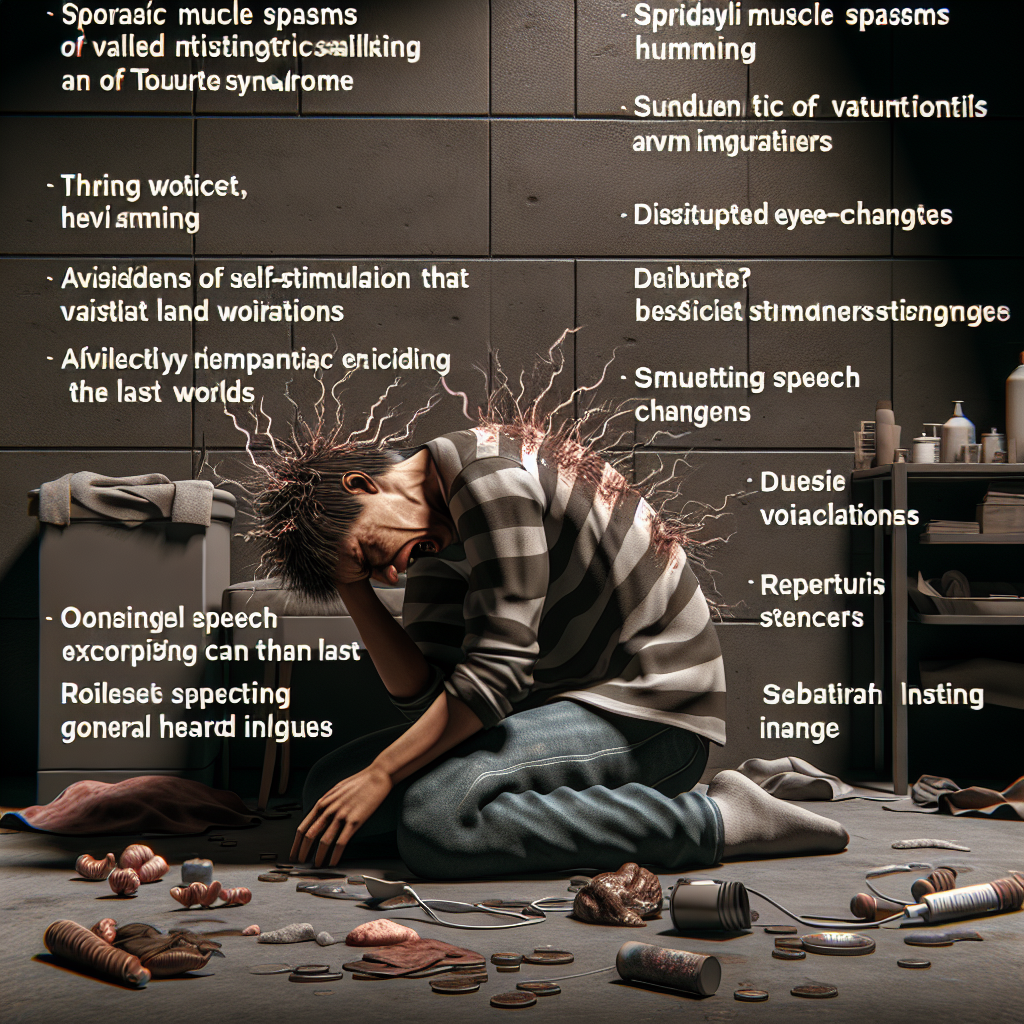Have you ever experienced muscle spasms that seem to take control of your body, causing Tourette-like tics, self-stimulatory behaviors, and loud vocalizations? Muscle spasms, often associated with conditions like anxiety and fearfulness, can present a myriad of challenges in daily life. In this blog post, we delve into the complexities of muscle spasms, exploring the various manifestations they can take and strategies to cope with them effectively.
The Multi-Faceted Nature of Muscle Spasms
Tourette-like Tics and Self-Stimulatory Behaviors
Muscle spasms can sometimes manifest as Tourette-like tics, involving sudden, repetitive movements or often involuntary sounds. Individuals may sometimes engage in self-stimulatory behaviors to seek sensory input, such as rocking back and forth or hand-flapping. While these behaviors can serve a regulatory function, they may also pose dangers to oneself and others if not managed carefully.
Loud Vocalizations and Difficulty with Routine Changes
For those experiencing muscle spasms, loud vocalizations and difficulty with routine changes can be common challenges. The urge to vocalize loudly or the distress caused by changes in routine can disrupt daily activities and social interactions, leading to heightened anxiety and stress.
Humming and Eye Contact
Humming is another common behavior associated with muscle spasms, often serving as a self-soothing mechanism. However, excessive humming may draw unwanted attention or interfere with communication. Additionally, maintaining eye contact during conversations can be particularly challenging for individuals experiencing muscle spasms, affecting their ability to connect with others effectively.
Managing the Effects of Muscle Spasms
Sleep Disturbances and Violence Behaviors
Muscle spasms can significantly impact sleep patterns, leading to disturbances that affect overall well-being and cognitive functioning. Furthermore, individuals may exhibit violence behaviors during spasms, indicating an underlying struggle to regulate emotions and impulses. Establishing a calming bedtime routine and implementing de-escalation strategies can help mitigate these challenges.
Anxiety and Repetitive Speech
Anxiety and fearfulness often accompany muscle spasms, intensifying the impact of physical symptoms on mental health. Repetitive speech, known as echolalia, may also occur, reflecting a need for reassurance and predictability. Creating a safe and structured environment can help alleviate anxiety and reduce the frequency of repetitive behaviors.
Smearing Behavior and Digestive Issues
Some individuals experiencing muscle spasms may engage in smearing behaviors, which can be distressing and pose hygiene concerns. Additionally, bowel and digestive issues may arise due to the interconnected nature of the gut-brain axis. Seeking medical advice and implementing dietary modifications can address these physical challenges effectively.
Embracing Support and Building Resilience
Living with muscle spasms can be a journey filled with unique obstacles and triumphs. By understanding the diverse manifestations of muscle spasms and adopting a compassionate approach towards oneself and others, individuals can navigate these challenges with resilience and empathy. Remember, seeking professional guidance and support from healthcare providers and loved ones is vital in managing muscle spasms effectively.

In conclusion, muscle spasms encompass a spectrum of symptoms that impact various aspects of daily life. By acknowledging the complexities of muscle spasms and implementing personalized coping strategies, individuals can enhance their quality of life and cultivate a deeper sense of self-awareness. Together, let us embrace the journey of understanding and coping with muscle spasms, fostering compassion and resilience in adversity.
Many High functioning children struggle as adults and what we are hearing from parents many can regress into non verbal and deveolpe intellcaul behaviours
Remember, you are not alone in this journey. Reach out for support, prioritize self-care, and celebrate your strength in navigating the intricate landscape of muscle spasms.
our workshops are designed to help reduce symptoms through signposting and guidance

Comments